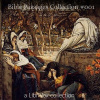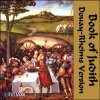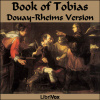Douay-Rheims Version (DRV) - Bible (DRV) New Testament
Douay-Rheims Version (DRV)
100%
Speed
Summary
The Douay Rheims New Testament, published in 1582, is a translation of St Jerome's Latin Vulgate which dates from the fourth century. It influenced production of the King James version of the Bible to come some years afterward, while being the only Roman Catholic authorized vernacular scriptures up until the middle twentieth century. Although updated linguistically in the 18th and 19th centuries to provide easier understanding by the laity and reduce its use of Latinized words, it strove to be faithful to the original translation. The work's importance is that it remains the scriptural texts still relied upon and recognized by more conservative Catholics, following the Second Vatican Council. Its original intent was to respond to the emerging Protestant Reformation of the sixteenth century in England. In a phrase, it seems to strive to be «the salt of the earth». (Summary by JCarson)
Series Bible (Douay-Rheims Version)
...
Bible (DRV) Apocrypha/Deuterocanon: 1 Maccabees
Bible (DRV) Apocrypha/Deuterocanon: Additions to Daniel
Bible (DRV) Apocrypha/Deuterocanon: Additions to Esther
Bible (DRV) Apocrypha/Deuterocanon: Baruch
Bible (DRV) Apocrypha/Deuterocanon: Book of Judith
Bible (DRV) Apocrypha/Deuterocanon: Book of Tobit (Tobias)
Bible (DRV) Apocrypha/Deuterocanon: Wisdom
Bible (DRV) New Testament
Show all
More from Douay-Rheims Version (DRV)
More from Douay-Rheims Version
Authorization
By logging in, you agree to the terms and conditions.














No comments